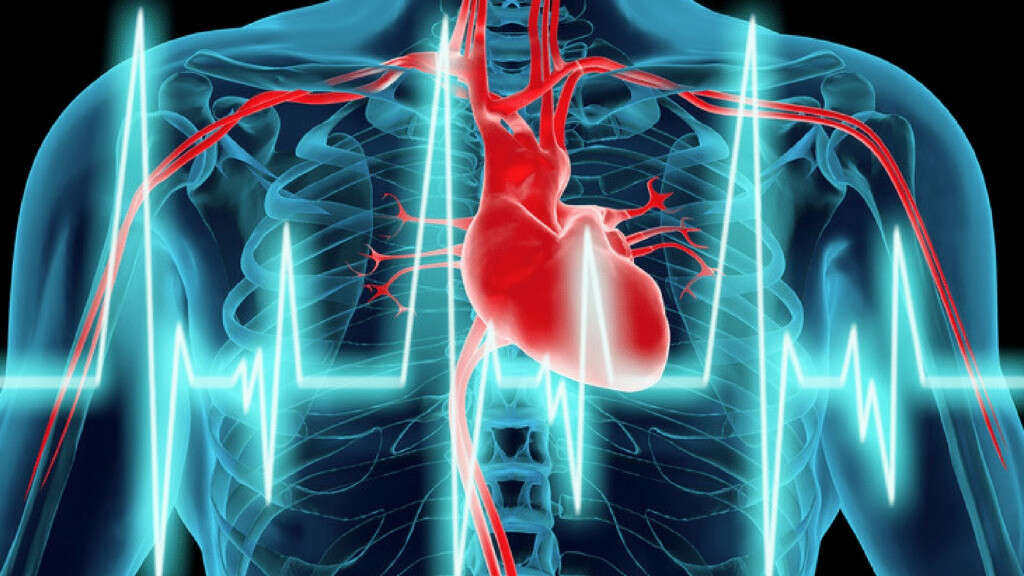10 Anorexia Symptoms
Anorexia nervosa, simply referred to as anorexia, is an eating disorder where the individual has an extreme fear of gaining weight and has a strong desire to be thin. This condition usually leads to low weight and extreme food restriction. Although they may be underweight, individuals with anorexia nervosa tend to see themselves as being overweight. These patients weigh themselves frequently and may eat little to no food.
The complications of anorexia nervosa include infertility, osteoporosis, heart damage, and many more. While the cause of anorexia nervosa is unknown, genetic components have been observed in studies involving identical twins. Cultural factors may also play a role, especially among societies or activities that value thinness such as gymnastics, modeling, and dancing. Treatment involves restoring the individual to a healthy weight and addressing underlying psychological issues through cognitive behavioral therapy. In some cases, hospital admission may be needed to restore weight through nasogastric tube feeding.
Anorexia nervosa is more common in females than in males with a ratio of 20:1 in developed countries. It can be seen at any age, but it is more usually diagnosed in puberty and early adulthood.

Symptom #1: Social Isolation And Depressed Mood
Patients suffering from anorexia nervosa will try to isolate themselves from others to prevent them from trying to change their unhealthy eating habits.
Many patients with this disease will also have an underlying psychiatric condition like depression, anxiety disorders or obsessive-compulsive disorder. Treating the psychiatric condition is vital to prevent further complications and relapses.

Symptom #2: Halitosis
Halitosis or bad breath can occur among many individuals. It is more commonly seen among those with anxiety, depression, or those with disorders of the throat, lungs, sinuses, nose, stomach, or esophagus. Initial efforts of management include tongue cleaning, flossing, and mouth washing. The treatment of underlying disease such as tooth decay, gum disease, or gastroesophageal reflux disease can also be beneficial.
Anorexia nervosa can also be a cause of bad breath as there are not enough nutrients in the body. This results in the breaking down of various proteins and fats causing ketoacidosis, which produces a fruity and foul-smelling breath.

Symptom #3: Hypothermia
The calories that we eat are vital for keeping us alive. We need them as a source of energy for proper cell functioning. When a patient is not getting the proper amount of calories in their diet they will develop problems with temperature regulation.
Patients suffering from anorexia nervosa will have cold hands and feet and will be less tolerant to cold environments due to their low body fat and extreme thinness.

Symptom #4: Underweight and Weight Loss
Weight loss occurs when there is a total reduction of body mass due to loss of adipose tissue, body fat, fluid, muscle, tendon, other connective tissue, and more. Unintentional weight loss is usually due to an underlying disease such as cancer, infection, and more. There are four mechanisms that results in weight loss, which are impaired digestion or absorption of nutrients, impaired intake of nutrients, altered metabolic requirements, and excessive nutrient loss.
In anorexia nervosa, weight loss occurs due to impaired food intake, where the individual refuses to consume enough calories. The continued weight loss results in the patient being extremely underweight. If left untreated, this condition can lead to very dangerous complications, therefore it is important to get medical attention to the patient as soon as possible.

Symptom #5: Hypotension
Hypotension is a term that refers to low blood pressure in the systemic circulation and arteries. It is defined as a systolic blood pressure of less than 90 mmHg or diastolic blood pressure of less than 60 mmHg. Clinically, blood pressure is only considered to be low when there are clinical symptoms.
Low blood pressure can deprive crucial organs of oxygen and nutrients, resulting in shock. To manage hypotension, the patient can be hospitalized and administered intravenous fluids or vasopressors. Hypotension can be a result of malnutrition and dehydration as a consequence of anorexia nervosa.

Symptom #6: Lanugo
Lanugo refers to thin, unpigmented, soft and downy hair that can be seen on a newborn baby. Lanugo is hair produced by the fetal hair follicles and appears around 16 weeks of gestation and is in abundance by week 20. Lanugo is normally shed before birth but can sometimes be present at birth. However, it usually disappears after a few weeks.
In anorexia nervosa, lanugo can be observed. It can be seen in malnourished patients such as those with eating disorders. Lanugo is one of the physical symptoms that helps achieve the diagnosis of bulimia nervosa or anorexia nervosa.

Symptom #7: Purging
As a way to stay thin patients suffering from eating disorders may purge themselves after a meal. This is more common in patients with bulimia nervosa but it can also be seen in anorexia nervosa.
The purge can be accomplished by the use of laxatives, self-induced vomit and/or extreme exercise routines. Anything that will flush the calories away to prevent gaining weight will work for them.

Symptom #8: Constipation
Constipation occurs when the bowel movements are infrequent or hard to pass. Some associated symptoms of constipation include abdominal bloating, pain, and the feeling where the bowel movement has yet to be completely passed. Constipation can result in complications such as fecal impaction, hemorrhoids, and anal fissure.
There are many patients with eating disorders who experience severe constipation. Past studies have suggested that constipation in patients with anorexia nervosa may be due to the slow colonic transit. However, newer studies have found that colonic transit usually returns to normal in the majority of anorexia nervosa patients once they start consuming a balanced diet and have a weight maintenance diet for a minimum of three weeks.

Symptom #9: Fatigue
Fatigue refers to a gradual state of tiredness. Many conditions can cause patients to be lethargic and tired. Patients with anorexia nervosa are food-deprived, which means that their organisms lack the nutrients for proper functioning.
Dizziness can also be seen in patients suffering from this condition and it can progress into occasional fainting episodes. If the condition is left untreated it can lead to life-threatening conditions, so it is of paramount importance to get these patients medical help as soon as possible.

Symptom #10: Amenorrhea
Amenorrhea refers to the absence of menstruation in a female who is in their reproductive age. Amenorrhea can be divided into physiological amenorrhea, primary amenorrhea, and secondary amenorrhea.
Physiological amenorrhea occurs when there is pregnancy or lactation. In primary amenorrhea, there is absence of secondary sexual characteristics. Secondary amenorrhea occurs when there have been previous episodes of menstruation but this has now ceased due to issues such as hormonal disturbances from the pituitary gland or hypothalamus, premature menopause, anorexia nervosa, and more.










